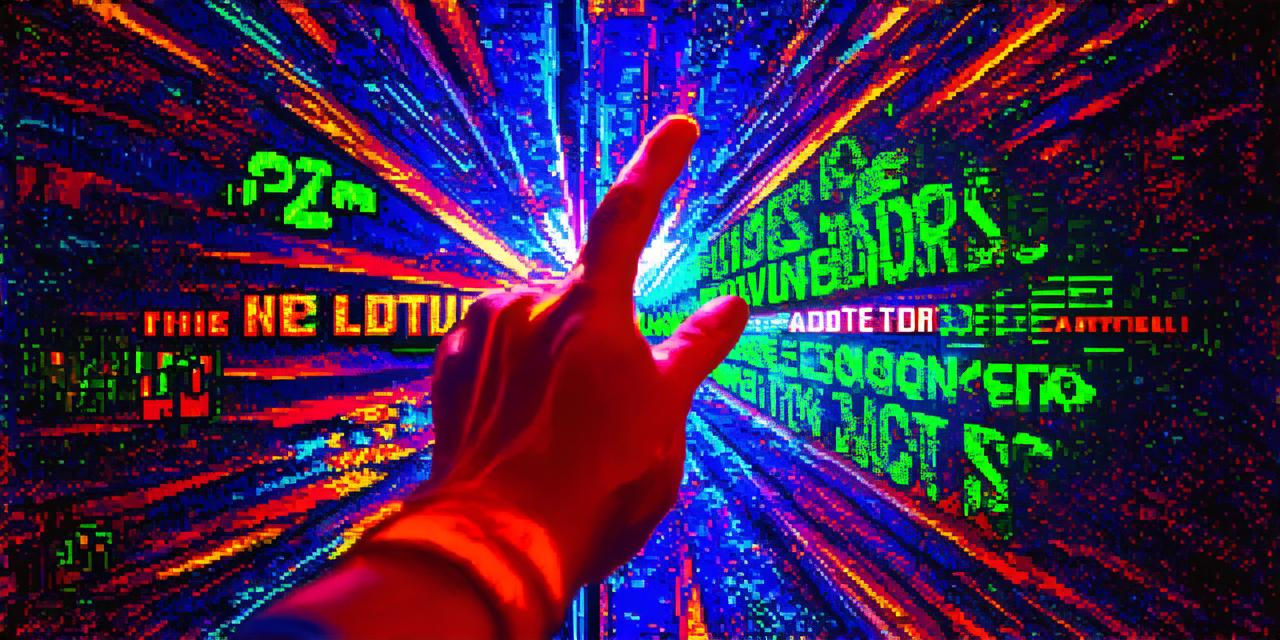Introduction
Video games have become an integral part of modern culture. They are fun, engaging, and provide a sense of accomplishment that can be addictive. However, for some individuals, this addiction can become a serious problem that affects their mental health, relationships, and daily life. As video game developers, it is important to understand the signs and symptoms of video game addiction and know how to help those who are struggling.

What is Video Game Addiction?
Video game addiction, also known as internet addiction or compulsive gaming, is a behavioral pattern characterized by excessive preoccupation with video games that interferes with daily life. It can be defined as a loss of control over the amount of time spent playing games, an inability to stop playing despite negative consequences, and feelings of guilt or shame about the addiction.
According to the World Health Organization (WHO), internet addiction is a clinical disorder that affects 6% of the population worldwide. The prevalence is higher among young people, with some studies suggesting that up to 10% of adolescents may be at risk of developing the condition.
The Signs and Symptoms of Video Game Addiction
The signs and symptoms of video game addiction can vary from person to person. However, there are some common indicators that suggest an individual may be struggling with the condition:
- Excessive amount of time spent playing games: If someone spends more than 6 hours a day playing games or feels like they need to play to escape other responsibilities, it could be a sign of addiction.
- Impaired social functioning: Video game addiction can lead to social isolation and a lack of interest in other activities. It can also cause problems with relationships, including conflicts with family members and friends.
- Negative impact on mental health: Excessive gaming can lead to anxiety, depression, sleep disorders, and other mental health issues. It can also interfere with school or work performance.
- Compulsive behavior: Video game addiction can manifest as a compulsion to play, even when it is not enjoyable or beneficial. This behavior can be difficult to control and may result in financial losses or damage to personal relationships.
- Cravings and withdrawals: Individuals with video game addiction may experience cravings for the sensation of playing games and withdrawal symptoms like irritability, mood swings, and anxiety when they are unable to play.
Case Studies and Personal Experiences
As a developer, it is important to understand that video game addiction can affect anyone, regardless of their background or profession. Here are some case studies and personal experiences that highlight the impact of video game addiction:
- Case Study: A successful entrepreneur who developed a popular mobile game became addicted to his own creation. He spent over 20 hours a day playing the game and neglected his business and personal relationships. After seeking professional help, he was able to overcome his addiction and focus on his business once again.
- Personal Experience: I have seen firsthand how video game addiction can take over someone’s life. A friend of mine became obsessed with an online multiplayer game and spent most of his free time playing it. He stopped going out with friends, missed deadlines at work, and even lost his job because of his addiction. It took him several months of therapy and support from loved ones to overcome his addiction.
How to Help Someone with Video Game Addiction
If you know someone who is struggling with video game addiction, it is important to offer your support and guidance. Here are some steps you can take:
- Educate yourself: Learn more about the signs and symptoms of video game addiction and how it affects individuals. This knowledge will help you better understand what your friend or colleague may be going through.
- Encourage seeking professional help: Video game addiction is a treatable condition, and seeking professional help is often the first step towards recovery. Suggest that they speak to a therapist or counselor who specializes in addiction.
- Set boundaries: It can be difficult for someone with video game addiction to control their behavior on their own. You can set boundaries by limiting the time they spend playing games or setting rules about when and where they play.



